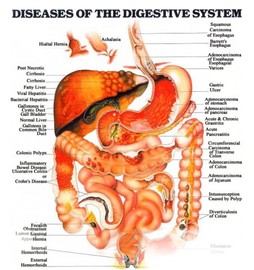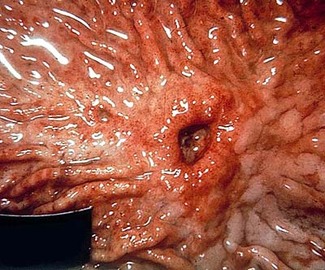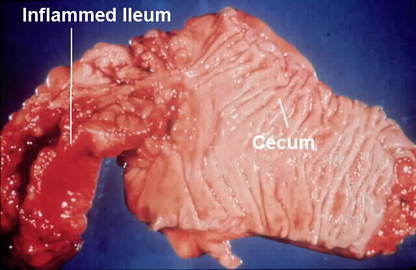The function of the digestive system

The digestive system is a chain of hollow organs connected together to form a long, twisting tube starting from the mouth and ending in the anus. It functions to convert the foods and liquids we eat into nutrients or energy needed by our body cells. This process is called digestion. Excess and unnecessary products of digestion are being excreted by the body through the anus in the form of feces or stool through the process of elimination.
What are digestive system diseases?

Diseases in the digestive system occur when there is an error in its function during the process of digestion and elimination. They prevent some part of the digestive system to function normally as it should.
There are actually a lot of diseases affecting the digestive system. Conditions which affect the different parts of the digestive or gastrointestinal tract (GIT) are considered digestive system diseases and disorders. The organs in the GIT are the mouth, esophagus, stomach, small and large intestines, and anus.
The following are some examples of diseases in the digestive tract:
· GERD (Gastroesophageal reflux disease). It is the cause of chronic acid reflux which can be felt by a burning sensation in the chest or heartburn.
· Cancer of the stomach, colon and rectum. Stomach cancer is also known as gastric cancer. Most of affected populations are those in their 6os and 70s. Helicobacter pylori is known to be its causative agent. Eating large amounts of smoked or salted meats, high in starch and low in fiber, pickled vegetables, and nitrites and nitrates rich foods also contribute to its development. Cancer in colon and rectum is altogether called colorectal cancer. It is the leading cause of mortality by cancer in the USA.
· Diarrhea.Occurs when the stool becomes watery or when there is increased frequency in defecation, or a combination of both. It can be both short-term and long-term and can be associated to bacterial or viral infection, or functional disorder in the intestines.
· Diverticular Disease. Small pouches are formed in the lining of the colon. Once these are infected or inflamed, the condition is called diverticulitis.
· Inflammatory Bowel Disease. This is a term used to call the two types of inflammation under this category – the Crohn’s Disease and Ulcerative colitis.
· Irritable Bowel Syndrome or IBS. It affects the intestines causing cramps, gassiness and bloating of the abdomen.
· Stomach and Duodenal Ulcers – These are open lesions or sores in the lining of the stomach or duodenum. Unhealthy lifestyle, stress, and diet may contribute to the development of ulcers.
Nervous disorders that affect the digestive tract

Some disorders in the GIT are caused by some faults in the part of the nervous system like in the case of Hirschsprung’s Disease. In this condition, the nerves that stimulate peristalsis (wavelike motion) in the bowel are missing. Thus, food in that area cannot be moved through and create a blockage leading to the build up of intestinal contents behind the blockage which will finally result to the swelling of the bowel and abdomen. This is a congenital defect.
Hints and Tips
There are a lot disorders and diseases affecting the digestive system. Some are really common and can be treated easily, while still others are hard to diagnose and difficult to treat. Research shows that nervous problems such as anxiety and depression can predispose a person to develop these diseases and they can also aggravate the symptoms. Most people who develop this disease have a poor lifestyle, unbalanced diet and too much exposure to stress.
The key is to have a healthy lifestyle, balanced diet and free from excessive stress.
Comments
Most Recent Articles
-
How To Treat Digestive Tract Diseases
Do you believe it when people say that you are what you eat? If you do then you are right in believing so. For those who don’t see the connection of the food you eat to what you are th...
-
Health And Fitness Diseases Of Digestive System
It is common knowledge that for our body to work properly and effectively it needs the much needed nutrients and nourishments. For us to be able to get our body properly nourished, you...
-
5 Common Signs Of Digestive System Diseases
If you are experiencing some problems with your stomach, esophagus, colon, liver or pancreas, and your bowel then you probably have a digestive system disease or disorders. Many people who a...
-
What Are The Causes Of Rheumatology Diseases
If you are one of the millions of people who are suffering from pains in the joints or muscles then you must have one of those rheumatology diseases. Those who are affected by any of these d...
-
How To Protect Yourself From Mascular Disease
Have you ever wondered why we have muscles and what are their purposes in the body aside from just giving our body our shape? Like any other parts in the body, the muscles too have their imp...
-
How to prevent stomach diseases
Your stomach can acquire diseases and disorders more frequently than you thought it would. It is believed that stomach diseases and disorders are among the most common in the world. These st...
-
Most Common Hospital For Joint Diseases
If you are thinking of the hospitals to have your joint diseases then you might want to prepare and pack your bags because you will be off to India. Joint diseases can be caused by different...
-
Bloating And Digestive Diseases
There are many people who experience digestive diseases due to different causes. There are many reasons why one’s digestive system acquires these diseases. But the important thing to c...
-
Remedies Of Diseases Of The Digestive System
Are you aware of the many possible diseases of the digestive system you can have in your body? You might have some ideas about it yet not sure whether it really got something to do...
-
Information About Joint Diseases
You must have heard about joint disease that have been bothering people and make them suffer intolerable pains. But are you aware what they really are and know some stuff about them? If you ...
-
Information About Digestive Diseases
The digestive system is important for the body to be healthy. This part of the person’s body is the one responsible in processing the food that we eat and break it down to get all the ...
-
5 Most Common Genetics Diseases
There are diseases that are caused by bacteria, viruses, and other organisms that attack the body and are not defeated by the body’s antibodies. These diseases are mostly curable or tr...
-
How To Treat Bronchial Diseases
Bronchial diseases are the diseases that affect the bronchial airways making it difficult to breath. The bronchi have the responsibility of carrying air into and out of the lungs. Bronchial ...
-
How To Protect Yourself From Breathing Diseases
Breathing disease is anything that prevents us from getting enough air and also being uncomfortable while breathing or inhaling air. Some of the breathing diseases are wheezing and lung fail...
-
How To Treat Viral Infectious Diseases
Viral infectious diseases are one of the most widespread diseases. The best example would be that of the common flu. Viral infections or diseases are caused by what medical authorities belie...